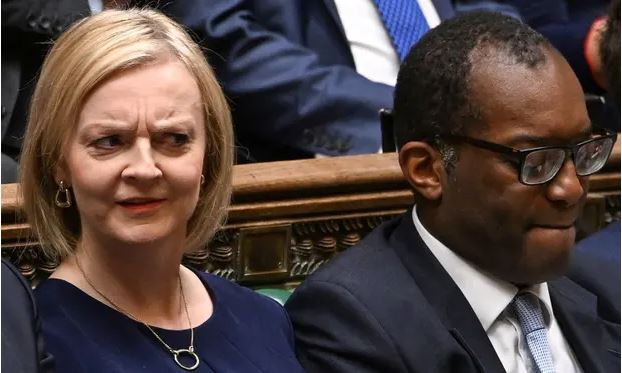
Have you noticed that Truss and her Cabinet colleagues have a new favourite phrase? It goes: “I do not accept the premise of your question.” They use it as a rhetorical ruse when they do not wish to answer a question.
So let’s talk about premises: specifically false premises.
Inequality Harms Growth
A full 14 years after it imploded spectacularly in 2008, it seems the “old-time religion”, free market fundamentalism, is back in vogue. One of its key ideas is that of “trickle-down” economics, which is dependent on the two false premises of FMF. It is surely tragic that we have allowed our government to regress to such crazy ideas.
At risk of the old adage “I told you so”, I demonstrated, with evidence, in a post seven years ago: Inequality Damages Your Wealth, that so-called trickle-down economics is a myth. There’s a considerable amount of evidence to show that policies now advanced by the Truss government will not increase growth – quite the opposite.
The Two False Premises
Also from 2015, in a post entitled Two Castles (part 2), I spelled out the false premises upon which Truss’s economic philosophy depends. Truss’s assertions about growth depend on these implicit and false assumptions:
- The only motive human beings have in making (economic) decisions is the pursuit of material self-interest. Not so: see my earlier post Being Human II: The Four Cs, or as highly-regarded Cambridge economist Ha-Joon Chang puts it: “… we have many other motives – honesty, self-respect, altruism, love, sympathy, faith, sense of duty, solidarity, loyalty, public-spiritedness, patriotism and so on” from 23 Things They Don’t Tell You About Capitalism (2010).
- Market participants (companies, individuals) know what they are doing, i.e. they make rational decisions. Again, not so. To quote Chang: “The world is very complex and our ability to deal with it is severely limited”. … 1978 Nobel prize-winning economist Herbert Simon wrote about “bounded rationality”, which describe how people’s ability to make rational decisions is severely restricted when faced with complex problems. Government regulations, the notorious “red tape”, work by restricting choice and simplifying problems, reducing the risk that things may go wrong.
It seems unbelievable that the mistakes of the Thatcher / Reagan era are to be repeated. Unbelievable, but perhaps not unexpected, given that Truss and Kwarteng were two of the co-authors of the notorious book Britannia Unchained, with its assertion about Britain’s “laziest” workers. The book makes clear its authors’ admiration for Thatcher and for those who influenced her thinking: Friedrich Hayek and the novelist Ayn Rand.
How Long?
So here we are. How long do we have to put up with this return to a failed ideology? (Here’s a view from across the pond.) Perhaps not long, given Truss’s unpopularity in the opinion polls: Tory MPs appear to be spooked by this. Only a week and a half after “normal” politics resumed following the official mourning period, Chancellor Kwateng’s unforced error landed us with a bill of £65 billion to be added to our national debt. How much more damage can they do before we kick them out of office?